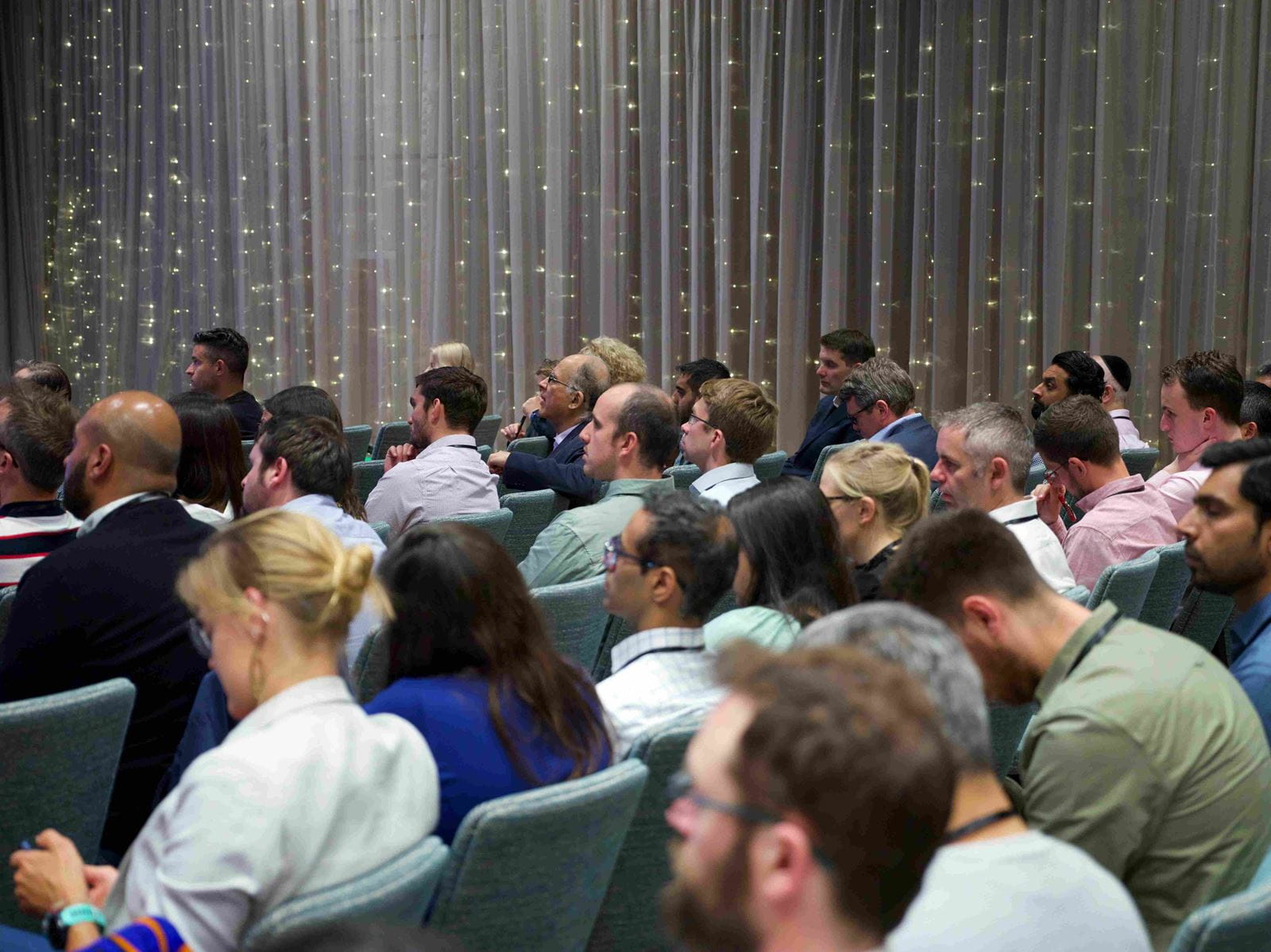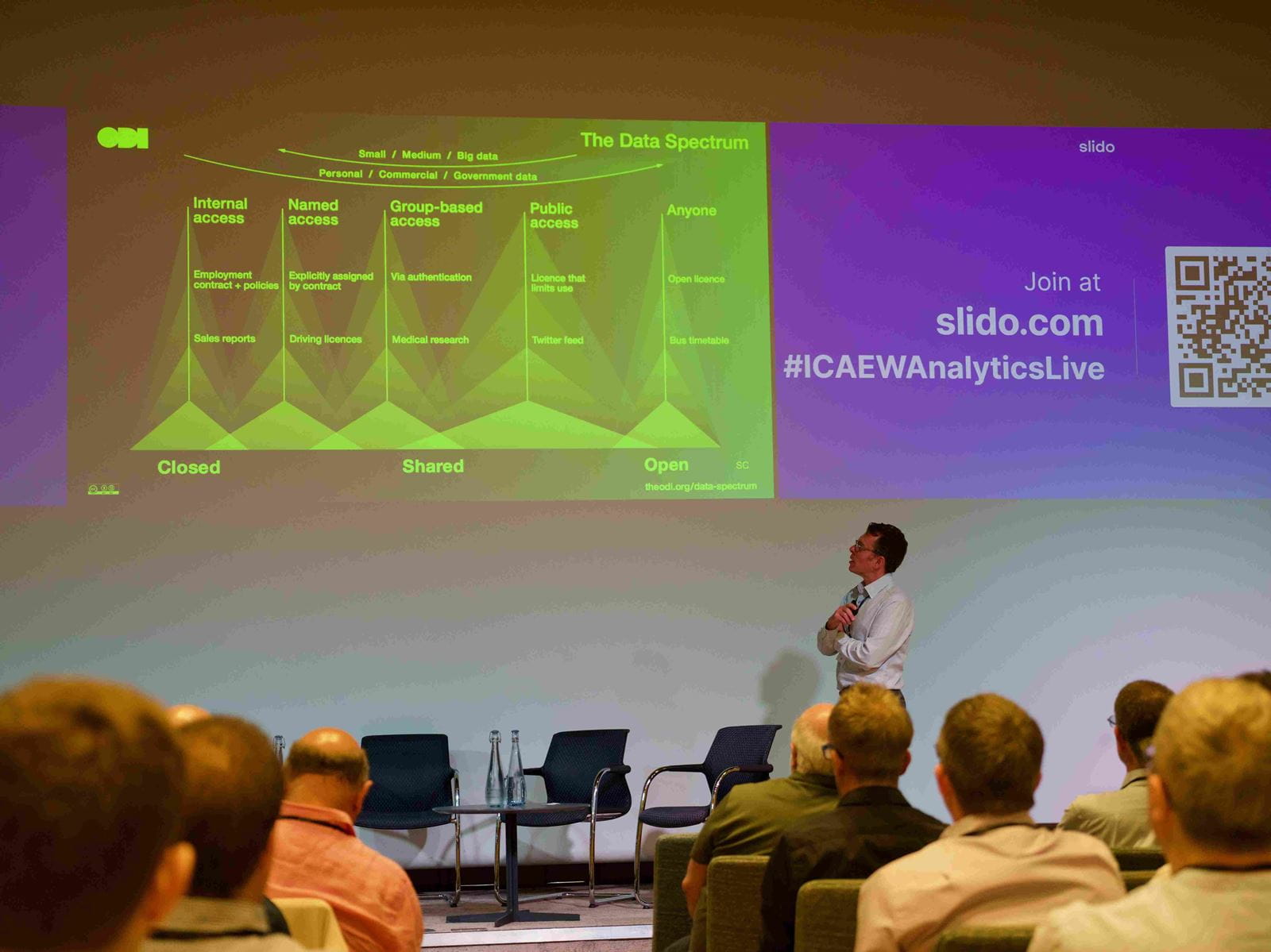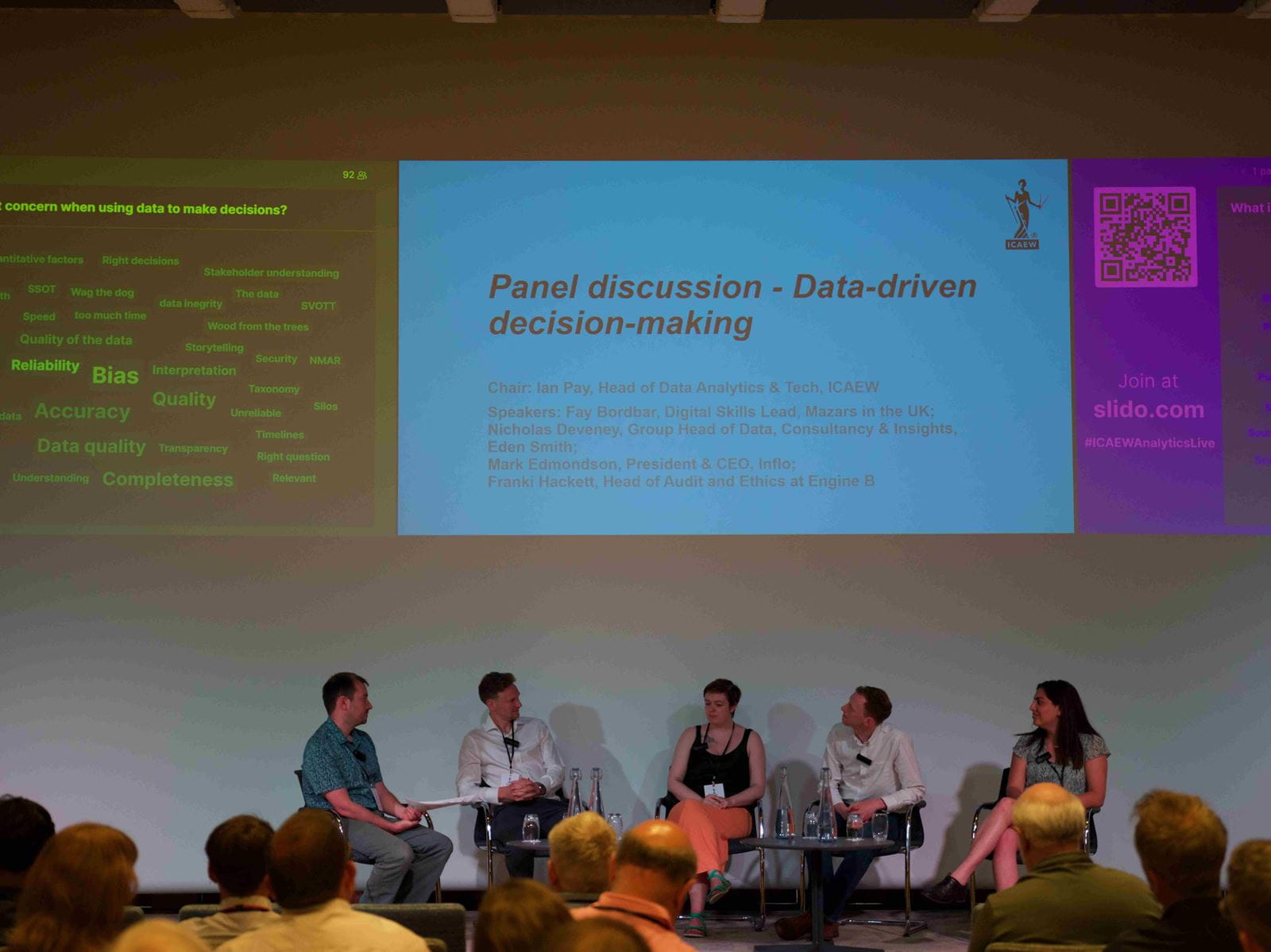Reflecting on the ICAEW Data Analytics Community’s first ever in-person event last month, Ian Pay, Head of Data Analytics and Tech, considers whether we’ve got it all wrong focusing on the data…

Well, what a blast. Analytics Live – the institute’s first in-person event focusing purely on data analytics – was by all accounts a huge success. With around 180 people in The Great Hall at Chartered Accountants’ Hall in London, and sessions covering a huge breadth of topics, we made a clear statement that accountants have a real interest in analytics that is showing no signs of waning.
Before we get into some of the learnings, first and foremost I have to thank everyone who was involved – our superb speakers, the ever-capable ICAEW Events team, our sponsors and supporters, but most of all every single person who attended and engaged so intently throughout the day.
The theme of the day – at least on paper anyway – was “data-driven decision-making”. But throughout the talks, the panel discussions and the questions being raised, some other themes soon emerged. Here, we’ll touch on three of them.
This being said, the potential of AI is also clear in the analytics space as deep learning tools can draw links between data points in ways that humans could only dream of, and the accessibility of AI gives more individuals and organisations the ability to use it in their decision-making process.
Before we get into some of the learnings, first and foremost I have to thank everyone who was involved – our superb speakers, the ever-capable ICAEW Events team, our sponsors and supporters, but most of all every single person who attended and engaged so intently throughout the day.
The theme of the day – at least on paper anyway – was “data-driven decision-making”. But throughout the talks, the panel discussions and the questions being raised, some other themes soon emerged. Here, we’ll touch on three of them.
Data is not the ‘new oil’
The Open Data Institute kicked off the day with a different way of thinking about data. The old adage that data is ‘the new oil’ was very much dismissed, instead considering a more modern perspective that ‘data is infrastructure’ – in essence, an integral part of society and the way it operates. The ODI advocates for greater trust and transparency in the use of data, while recognising that in some sectors – such as accounting – there are situations where some data has to remain protected. The key – as is the case with traditional infrastructure – is to have in place the structures, systems, standards and policies that ensure data is readily available when it needs to be, and isn’t when not. Open Banking and Transport for London’s data feeds are prime examples of how data – if shared in a controlled way – can lead to immense innovation and societal benefits. The ODI’s Data Ethics Canvas helps with some of the frameworks needed to embrace a change of mindset towards data sharing, rather than data hoarding.Where the future lies
Indisputably, the marriage between AI and analytics has great potential. And the ability to rely on AI depends on having good data foundations – rich, diverse, representative datasets. As Sarah Schlobohm observed, bias that already exists in human society is often amplified by poorly chosen training data. This is often more visible in image generation than text generation – for example, the fact that Sarah, as someone who wears glasses, is often depicted by AI image generation tools as someone without glasses, simply because the training data that goes into those image generation tools is skewed towards faces without glasses. And the ODI recognised the challenges that we face in the age of generative AI, highlighting the fact that Wikipedia constitutes just 3% of ChatGPT’s training data, but a disproportionate amount of the neural network’s processing.This being said, the potential of AI is also clear in the analytics space as deep learning tools can draw links between data points in ways that humans could only dream of, and the accessibility of AI gives more individuals and organisations the ability to use it in their decision-making process.

A human-led approach to analytics
The one theme that Analytics Live kept drifting back towards was the critical interface that so often is overlooked when considering data – the human one. And fundamentally – whether it was Nick from Eden Smith talking about data capabilities, Andrew from Grant Thornton talking about low-code platforms, or Dr Christina Phillips talking about her work on Human Centric Analytics – people are always at the heart of it all.
There’s a number of considerations at play when it comes to the role of people in analytics. Skills are of course a key element, and the ODI’s Data Skills Framework provides some initial thoughts on this. Crucially, analytical skills aren’t just about the ability to ‘crunch the numbers’, but involve strategic considerations, governance, interpretation and critical thinking. Building a data team also isn’t just about recruiting a bunch of data scientists, but developing a change of culture in an organisation that embraces the use of data at every level.
Low-code tools are democratising the analytical process for many organisations, affording many benefits and giving people access to advanced capabilities who might previously have needed to learn programming languages such as Python and R. But the human side of it remains important – people will only embrace such tools if they have confidence in doing so, which requires champions, advocates and a sense of community. And from a governance perspective, there is a need to focus on the human too – to understand how they are actually using the tools, have clear processes, support and allow time for specialist review.
When considering what people’s greatest concerns were around making data-driven decisions, quality, accuracy and completeness all featured highly – ultimately, levers that play a key role in making the right decisions. These features require good data architecture, but also need individuals across an organisation to place value on them. As was discussed in our panel session, decision-makers aren’t always those at the top anymore, and increasingly it’s those with their hands on the data that wield the most power, using it to influence and guide leadership towards making informed decisions. That influence isn’t about data driving the decisions, it’s about the people with the data driving them.
There’s a number of considerations at play when it comes to the role of people in analytics. Skills are of course a key element, and the ODI’s Data Skills Framework provides some initial thoughts on this. Crucially, analytical skills aren’t just about the ability to ‘crunch the numbers’, but involve strategic considerations, governance, interpretation and critical thinking. Building a data team also isn’t just about recruiting a bunch of data scientists, but developing a change of culture in an organisation that embraces the use of data at every level.
Low-code tools are democratising the analytical process for many organisations, affording many benefits and giving people access to advanced capabilities who might previously have needed to learn programming languages such as Python and R. But the human side of it remains important – people will only embrace such tools if they have confidence in doing so, which requires champions, advocates and a sense of community. And from a governance perspective, there is a need to focus on the human too – to understand how they are actually using the tools, have clear processes, support and allow time for specialist review.
When considering what people’s greatest concerns were around making data-driven decisions, quality, accuracy and completeness all featured highly – ultimately, levers that play a key role in making the right decisions. These features require good data architecture, but also need individuals across an organisation to place value on them. As was discussed in our panel session, decision-makers aren’t always those at the top anymore, and increasingly it’s those with their hands on the data that wield the most power, using it to influence and guide leadership towards making informed decisions. That influence isn’t about data driving the decisions, it’s about the people with the data driving them.

